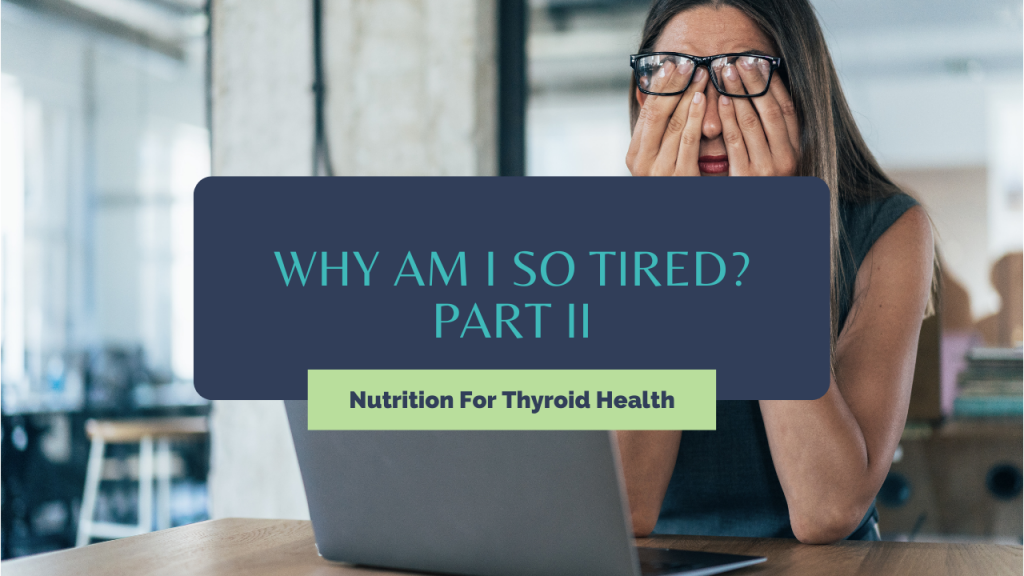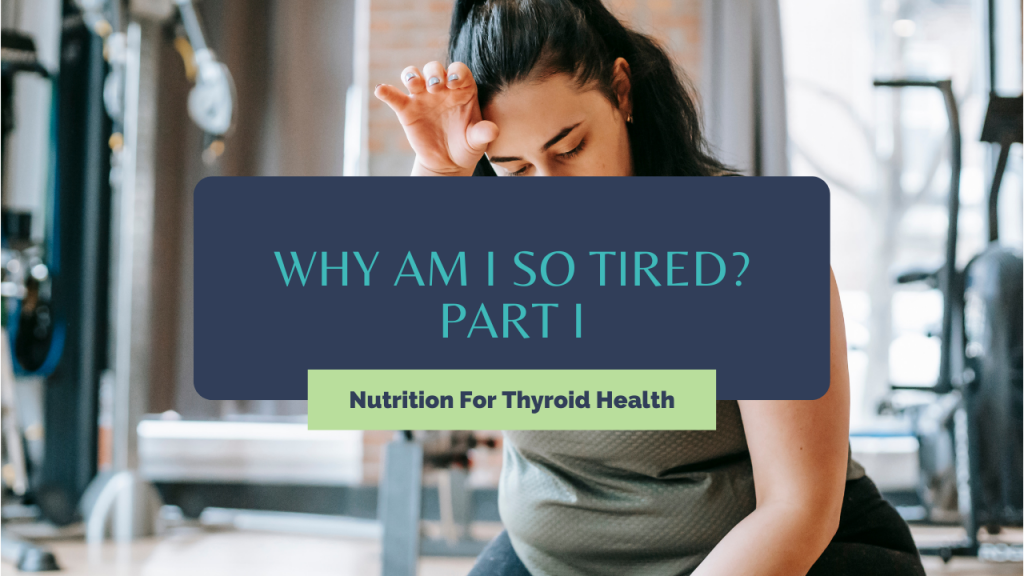Why Am I So Tired? – Part II
Last week, I covered the main physical reasons why you are so tired. This week, we will focus on your mind and how it affects your energy levels. If you haven’t read last week’s blog post yet, catch up by reading it here first, then come back for part II.
You’re Focusing on the Negative
When you’re feeling like you can hardly function even after lying in bed for 10 to 12 hours, it can be really hard to focus on the positive aspects of your health — especially if you feel like you’ve tried everything and can’t find the help you need to feel better. Believe me, I can relate: I was literally given no help and support. I was told that this was my new normal, and I was just supposed to deal with it. This made it difficult to stay positive and caused me to focus on the negatives.
If you feel this way, I encourage you to focus on what you can do: What is one quick win you can achieve? This is how my programs are designed; we work on a few little things, and little by little, people feel motivated to keep going forward.
Your Nervous System Is Not Working Properly
Do you have anxiety? Are you overstimulated? Are you not getting the breaks you need throughout the day? Is your mind tired? If you’re just plugging away at things all the time, you’re going to stay in fight or flight mode. And if you’re constantly running from that proverbial saber-tooth tiger, you won’t be able to calm down and shut your brain off.
What you want is to get into that rest and digest state where your parasympathetic nervous system kicks in to help you achieve a state of calm. The way you do that is by stimulating the vagus nerve, which runs right behind the back of your ear, kind of at the base of your ear lobe on the mastoid bone right underneath on the back of your skull.
This is a whole other topic on its own, so if you’re curious to learn more, Google “stimulation of vagus nerve” to learn ways to calm yourself down. A few methods I recommend:
- Use clove and lime oil on the mastoid bone
- Practice deep breathing
- Incorporate meditation and mindfulness
- Walk in nature
- Focus on restorative movement
You’re Not Getting the Support You Need
A running theme with the issues above is that they come about when people don’t have the resources and support, they need to find the right solutions for their fatigue. Ultimately, getting expert insights into your particular situation will help to identify the underlying causes of your fatigue.
My programs are designed to help people resolve their symptoms much faster than if they were to try addressing them on their own. With my new Health Reset Membership, people are able to reset their bodies in a short period of time while getting the support they need to stick with the program and make lasting changes to optimize their health.
If you’re looking for a program that’s tailored to your needs to overcome your fatigue, thyroid issues, or other health problems, this program could be exactly what you need to get on track. Right now, you can take advantage of founding membership pricing of $2,000 for a limited time. To learn more and get started, message me at hello@tiffanyflaten.com or visit https://tiffanyflaten.com/.
Why Am I So Tired? – Part II Read More »





